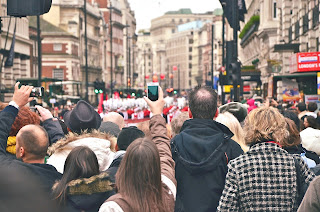Social Media In Egypt
In the New York Times article, "Movement Began With Outrage and a Facebook Page That Gave It an Outlet," Jennifer Preston wrote about how social media is affecting Egypt's government. The uproar in Egypt surrounded the death of Khaled Said. An Egyptian businessman, Said was suddenly beaten to death by police for reasons that were unclear at the time, and for quite a while afterward. It wasn't until other citizens of Egypt took to social media that questions about Said's death were finally answered.
Activists created the Facebook group, We Are All Khaled Said, which was used to support Said and raise awareness of what happened. The membership of this group quickly skyrocketed and it soon had more than 473,000 members. This group – along with coverage of the activism on YouTube and Twitter – became a catalyst for social and political change in Egypt, a country with limited free speech.
This kind of movement is exactly why social media is one of the most significant advancements of our time. People often criticize the tool for being a distraction and limiting the success of humans, but it’s clear that the benefits of social media greatly outweigh these small issues. In this case, social media gave a voice to citizens of Egypt who otherwise would have been left to be tortured and mistreated by the police force. From protest organizations to general promotion of a movement, social media can be used in so many ways to give a voice to the silenced.
Even in countries that promote free speech, social media can be a powerful tool. U.S. citizens have participated in plenty of social media activism. In recent years, we have seen videos exposing police corruption, minority groups claim their place in and become accepted into society, and support from all kinds of people from all across the country. Never before has the underdog been as influential as the mainstream.

Comments
Post a Comment